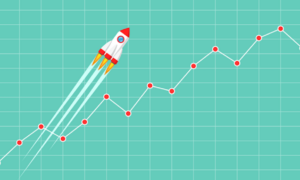A few weeks ago, I wrote a LinkedIn post puzzling over Europe’s digital Unicorns – or lack of – as we were working on Dispatches, our new expat/techpat-focused news and entertainment platform.
I saved medtech and fintech for a later post because I was struck by the advances in Europe in these two areas compared with consumer-facing digital such as e-tail, content streaming and social media.
Which we Americans own.
But it seems to me Europeans are on the cusp of staking big claims in business sectors likely to be more profitable, enduring and socially important than being able to stream “The Interview” any time you want: Medical instrument innovation and financial transactions.

The global medtech market is projected to grow 4.1 percent annually between 2014 and 2020, reaching $477.5 billion by the end of the decade, according to Evaluate, LTD. Medtech and other commercialized intellectual properties typically come out of top universities, which plow their share of profits back into research programs – a virtuous economic-development circle for the Bostons, Oxford and Cambridges of the world.
Fintech investment is increasing 45 percent annually, with $13.7 billion injected into startups in 2014, according to Business Insider.
For a little context, aggregate ad spends on the social media we find so much sexier were about $24 billion last year.
 The U.S. may have Facebook, but Europe seems to be taking the lead in a world where an increasing percentage of on-line banking transactions are via mobile devices – more than half now in the United Kingdom.
The U.S. may have Facebook, but Europe seems to be taking the lead in a world where an increasing percentage of on-line banking transactions are via mobile devices – more than half now in the United Kingdom.
Amsterdam-based Adyen, which I included in my last post about European Unicorns, has a whole new global profile. Facebook CEO Mark Zuckerberg, LinkedIn CEO Reed Hoffman and other billionaires have quietly invested via Iconiq Capital, an investment management firm to the stars.
Adyen supplies the technology that facilitates nearly every kind of transaction – online, in stores/POS or mobile – anywhere in the world and in any currency. And, of course, the company crunches all that data from all those transactions to sell back to merchants, banks, retailers and manufacturers in the form of industry intelligence. Brilliant!
In Medtech, France has one of the most talked about companies – and this is easy to remember – in Medtech. Based in sunny Montpellier in the South of France, Medtech isn’t a startup. It’s a 13-year-old, publicly traded company that sells surgical robots. But surgical robots; how cool is that? I included them on a list of innovators to watch because ironically, Medtech sells its technology to high-tech healthcare providers such as Lucile Packard Children’s Hospital (think Hewlett-Packard) at Stanford University!
So, here’s my quick-and-dirty list of interesting fintech and medtech startups in Europe, with most of the information culled from Financial Times, Forbes, the Wall Street Journal and other sources.
• Like the French, the Swiss don’t really seem to do much consumer digital. Their startup scene is focused on high-tech industrial such as integrating nano-technology into lighting, and high-tech bio-medical.
The Top-100 list on the Swiss Startup website includes some tantalizing concepts, such as MindMaze. MindMaze is a 3-year-old technology combining immersive virtual reality, brain imaging and 3D technology in real time “to build novel platforms for Neurorehabilitation.” Finite universe of users, but a definite gee-whiz factor.
• Another company from that same list is 4-year-old Sophia Genetics, which is developing an “integrated application for the analysis and banking of patient DNA sequences generated by Next Generation Sequencing (NGS).”
• Daalder, an Amsterdam-based mobile payment service has been adopted pretty much throughout the Netherlands.
Daalder was founded in 2013 by CEO Renz Millenaar, CTO Romke de Vries and investor Reinhard Spronk. They developed a payment system that lets companies receive – and make – mobile payments through the Daalder app, which hosts an e-wallet that can be filled with digital Euros.
Daalder cuts out the banks … and transaction fees. Consumers can pay quickly via the Daalder smartphone app.
• Financial Times has a recent post about startup Mecca Berlin being left out of fintech, mostly due to regulatory obstacles. Oddly, in that post, they mention WeltSparen, which allows savers to move money between accounts in different countries to take advantage of interest rate arbitrage. (We watched friends play the repo rate in Turkey, and we know rate shopping can be highly lucrative for small-time investors.)
That FT post also outlines German banking giants Commerzbank’s and Deutsche Bank’s plays as they finance fintech startups through their own incubators and accelerators.
• Business journalist Alison Coleman wrote a great post for Forbes last year about MedEye, headquartered in Dispatches’ future headquarters of Eindhoven. MedEye has patented computer vision hardware – okay, a pill scanner – designed to make sure patients get the right medication. How huge could this be?
From the Forbes post:
Describing the scale of the problem, (MedEye co-founder Gaudi) Reynisson says: “In the next 24 hours, patients in 6000 European hospitals will be getting over 40 million dosages of medication, yet one in five of these will be given incorrectly by the hospital nurse at the bedside.”
Sometimes, he says, the patient gets the wrong medication, sometimes it’s the wrong dose, and sometimes it is the wrong patient, but it means that over eight million dosages given today have something wrong with them, and it is mainly the result of increasing complexities and time pressures that nursing staff face.
The takeaway for me in all this is, American innovators know one important thing: 75 percent of the U.S. GDP is derived from consumer spending. So, we create Amazon and Tesla and party from boom to bust.
In European countries such as Germany and Switzerland, it’s closer to 50 percent. There, the future may be less sexy but just as technologically challenging innovations in categories the world will never cut back on – money and healthcare.
Co-CEO of Dispatches Europe. A former military reporter, I'm a serial expat who has lived in France, Turkey, Germany and the Netherlands.















